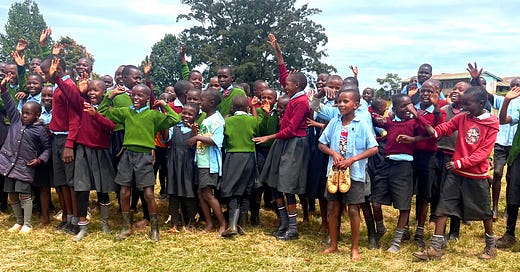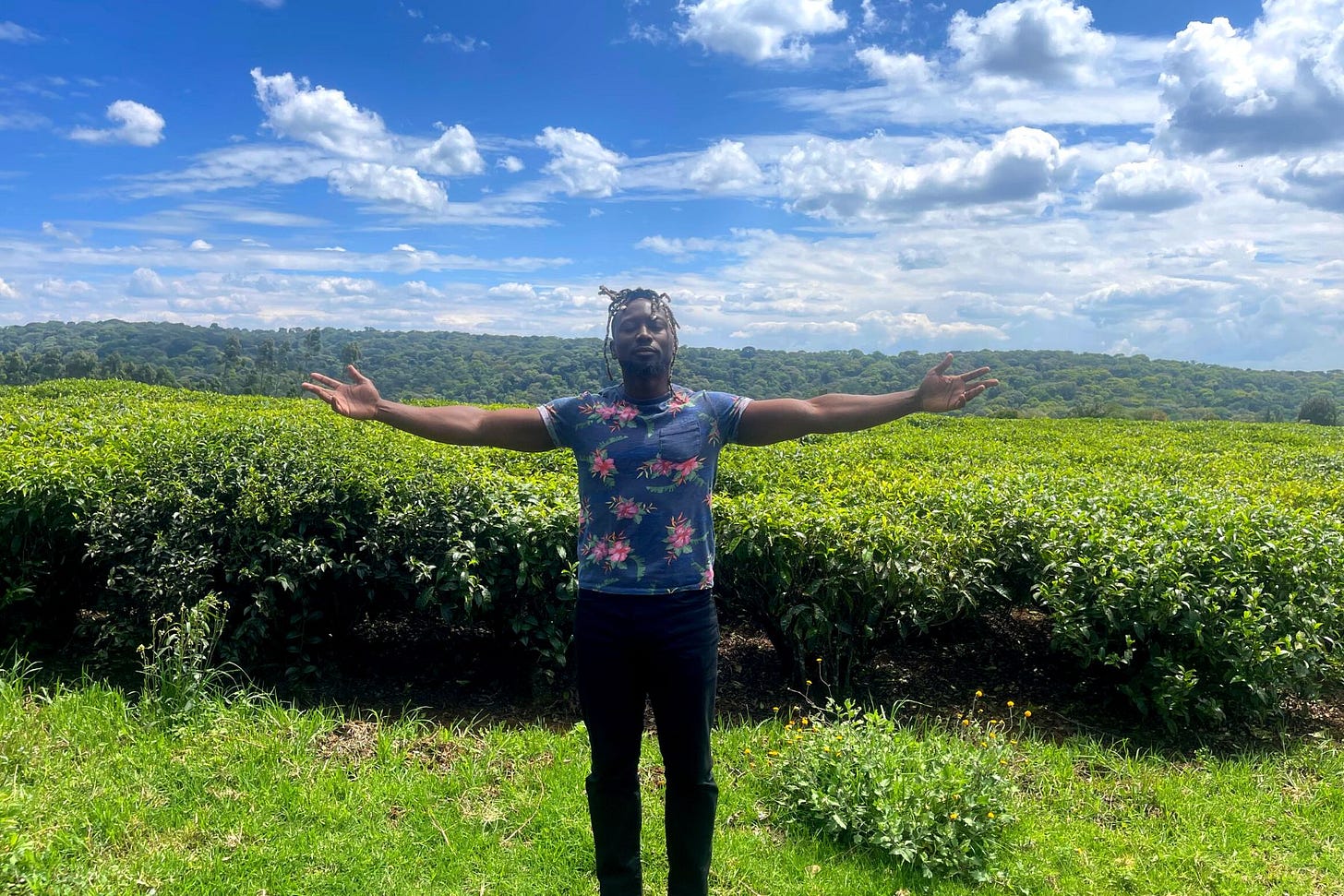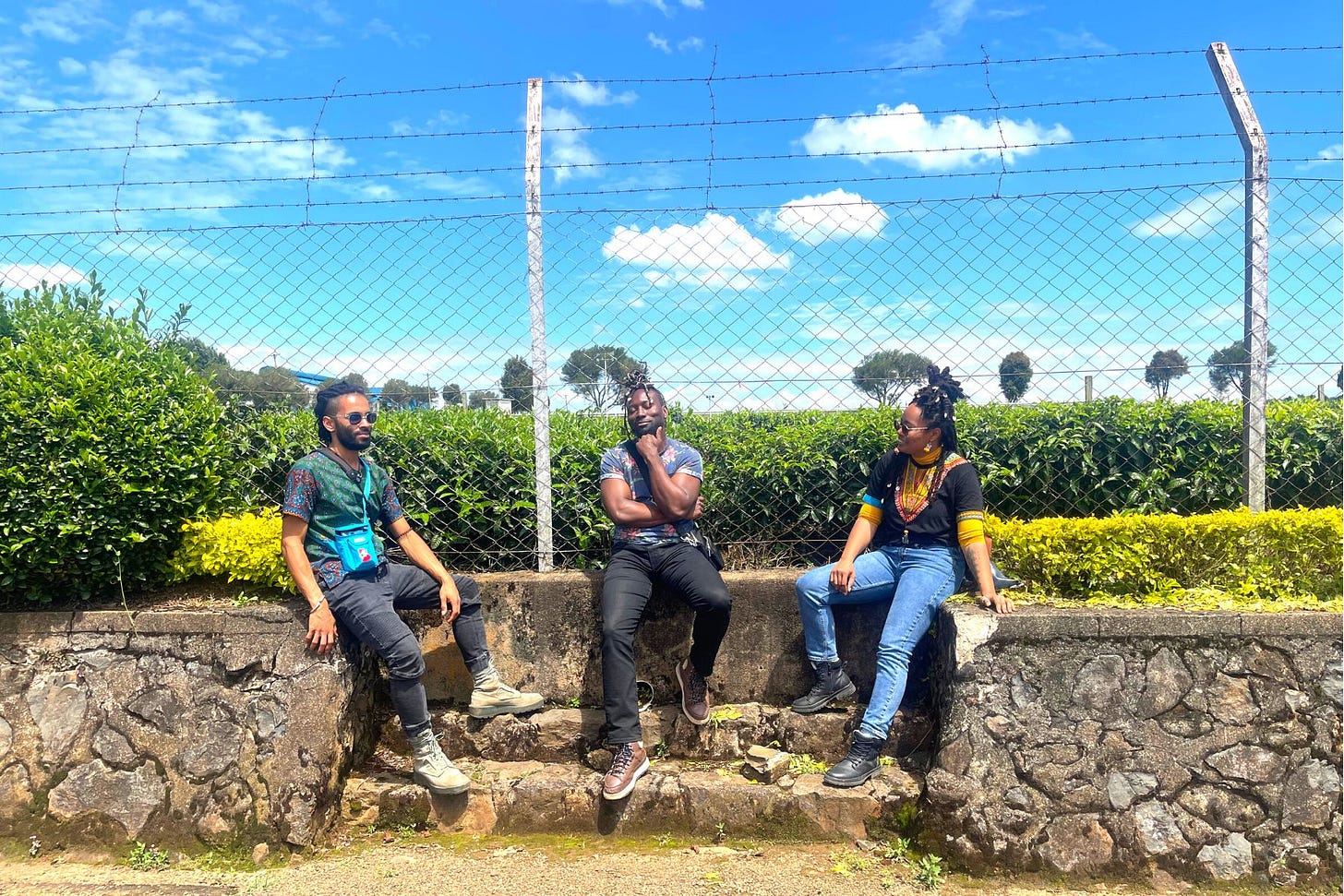It took 6 hours by car from Nairobi to Kericho. I enjoyed the beautiful scenery, landscape and lush greenery that lined the expressway on the road trip. After taking numerous pictures and videos, I tired from gazing in wonderment and proceeded to read a book. Reading was one of my first loves and like a long-term couple that might have lost their spark, I have been trying to spend quality time of late to rekindle our connection. I remember being a kid in Lagos, often occupying the long summer days of no electricity playing football (soccer) and voraciously consuming my mom’s Danielle Steele and Jackie Collins novels, essentially entering into worlds I knew nothing about. I read any book in sight and this is probably where the seeds of me being a wordsmith were sown.
Anyway, the slumber that inevitably overtakes most people on long road trips soon set in as I dozed in and out of consciousness and before I knew it, we finally arrived in Kericho, a town which unbeknownst to me is viewed as the home of the best Kenyan black tea.
My first full day in Kericho started with a visit to a tea farm, more specifically The Tea Research Institute. The massive institute grounds were initially built in 1949 by the British when they still unfortunately colonized Kenya. The bushes of tea fields or “shamba” as they are called, sprawl for miles in neatly arranged beds with some of the initial seeding going back beyond decades. All teas produced are organic with no artificial GMOs and it’s so fresh I could pretty much smell it in the air.
Tea is a big deal in Kenya, not just from the drinking perspective but from a farming production standpoint. Only China leads Kenya in black tea production worldwide and the country ranks third place after India overall. According to The Board of Kenya, annually, the country ‘produces over 450 million Kgs of tea, bringing in over K.sh 120 Billion in export earnings, and 22 Billion on local sales.
The industry supports about 5 million people making it one of the leading sources of livelihood in Kenya’. At the institute, I was told how tea is bred for tolerance with selected progenies set aside to produce the best stock. And to enjoy the full nutrients of tea, it is best to not add sugar or milk because it lowers antioxidants, but honey is more acceptable. The Tea Institute in Kericho rivals the size of a small town and has over 300 people working and living there, some with their families and children who attend elementary as well as high school on the campus grounds.
My visit to the institute and learning more about tea production had me wondering more about land ownership and who really profits from tea in Kericho. With a little digging, I found that over 100 families in the entire county had been tortured and forcibly relocated from their land by British colonialists in 1934 (Kenya attained independence in 1963) because it sat on very fertile land in the Rift Valley.
Much of that land was then later used for tea farming and led to boundless profits that primarily benefited the British government with no compensation for the original owners. “The world needs to know that that tea, being exported from Kericho is blood tea. We need to bring a closure by demanding reparations and an apology from the UK government”. These are the words of Paul Chepkwony when he was Governor of Kericho county, a position he recently decided to step away from. Tea farms in Kericho including the Tea Institute are now managed by the Kenyan Tea Development Agency (KTDA), a private company owned by about 600,000 smallholder tea farmers spread across 16 tea growing counties in Kenya. It is important to note that KTDA controls only 60% of the entire Kenyan production market.
The remaining 40% has international companies involved and it’s no surprise that Britain is still in the mix, including Unilever and a Scottish company by the name of James Finlay Kenya Limited (JFK). JFK is now being sued in Scottish court by 1000 current and former tea pickers in Kenya over poor working conditions that led to musculoskeletal injuries and other ailments. According to Saman Gunadosa of WSWS, Unilever workers aren’t fairing that much better. “Unilever’s Kericho county farm can make 515 Kenyan shillings ($US5.15) a day, barely sufficient for daily expenses. A very basic meal costs around 100 shillings and a fast food restaurant meal is well over 500 shillings. Manual plucking workers get 16 shillings per kilo of plucked and sorted tea. To take home 515 shillings, she or he will have to pluck a back-breaking average of 32 kilos”.
“Read the tea leaves” is a phrase akin to making an assessment and predicting what’s about to happen or will likely happen in the near future. In the case of Kericho, I believe the tea tells us more about what has happened in the past. Kericho mirrors similar instances that have happened in Africa and all over the world, where people of marginalized communities have been stripped off their resources and property for profit, with little to no reparations or repercussions, even as the after effects continue to linger. What started as a casual visit to the Tea Institute in Kericho, opened up the flood gates to uncovering so much more.
As I shared in my previous post, this particular voyage in Kenya is meant to be one of external experiences and internal reflection, so I will continue to take you on this journey as both simultaneously unfold. Up next, I attend my first Kenyan wedding and I can’t wait to tell you more about it in next week’s installation of #MotionMondays.
Till then, thanks for living vicariously through my experiences and self-reflection, and especially for your subscription to #MotionMondays. Do feel free to drop a comment or send a question, I would love to hear your feedback, insights and thoughts, it really helps. I have more pictures, video and stories from my time at the tea farm currently on my latest instagram post and will continue to share all week, so feel free to check that out as well.
Till next week, stay in motion and happy holidays!








There's so much to love in this piece. So many layers. Reading the tea leaves was on point. Thanks for sharing!
Thanks for sharing this; I enjoyed being in that experience while reading. I love fresh tea and coffee and drink them daily. I consume unsweetened because I grew up with the aroma of tea and coffee filling the air and never want that savory, fresh aroma or taste diluted! I also have an extensive collection of tea I restock regularly, and I purchase some made in Kenya or Ethiopia. I have recently observed there’s more attention drawn to where or how tea and coffee are sourced. I have sometimes assumed they are marketing rhetoric, that may or may not be accurate (sustainably sourced, supports the community in Africa, etc.).
Thanks for casting some light on the history and the injustice. Excellent writing, as usual :)